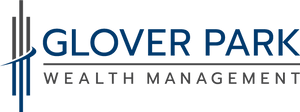Account Management & Investing: At Glover Park Wealth, we manage and invest in retirement vehicles for our clients: Traditional/Roth IRAs, SEP IRAs, Solo 401(k)s, and taxable accounts using diversified, low-cost assets (ETFs, stocks, bonds, Treasuries, options) with ongoing asset allocation adjustments based on market conditions.
Medicare Guidance: Our licensed Medicare partners provide consulting for Medicare enrollment to optimize healthcare coverage in retirement.
Tax-Efficient Strategies: They coordinate with accountants for tax planning, and estate attorneys to build a tax efficient plan for today and for legacy planning.
Corporate/Employer Plans: For businesses, they design, administer, and manage 401(k)s (acting as 3(38) or co-fiduciary), plus other plans like 403(b)s, Cash Balance, or Defined Benefit plans, with employee education for better outcomes.
Broader Integration: Retirement planning ties into estate coordination, cash flow analysis, and risk management to build a retirement plan for you.
Contact the advisors at Glover Park Wealth Management, LLC today to schedule a retirement planning session.

NAVIGATING EVERY FACET
Our comprehensive retirement planning solutions.
Our retirement planning services offer a comprehensive solution to address all your needs for making the most out of your golden years.
As a fiduciary RIA, Glover Park Wealth takes a custom approach to retirement planning, integrating it into comprehensive financial plans tailored to your specific goals, time horizon, risk tolerance, and life stage (accumulation, preservation, or distribution).
Tax-Efficient Strategies: We coordinate with accountants for tax planning, including strategies to minimize taxes on retirement distributions (RMD's) and inheritances.
At Glover Park Wealth, we focus is on building, growing, and protecting retirement assets with personalized, objective advice. Contact the advisors at Glover Park Wealth Management today for a complimentary retirement planning meeting.
Personalized
Retirement plans custom to your unique circumstances and goals for the long-term and legacy planning.
innovative
We Plan for the future to protect your legacy.
